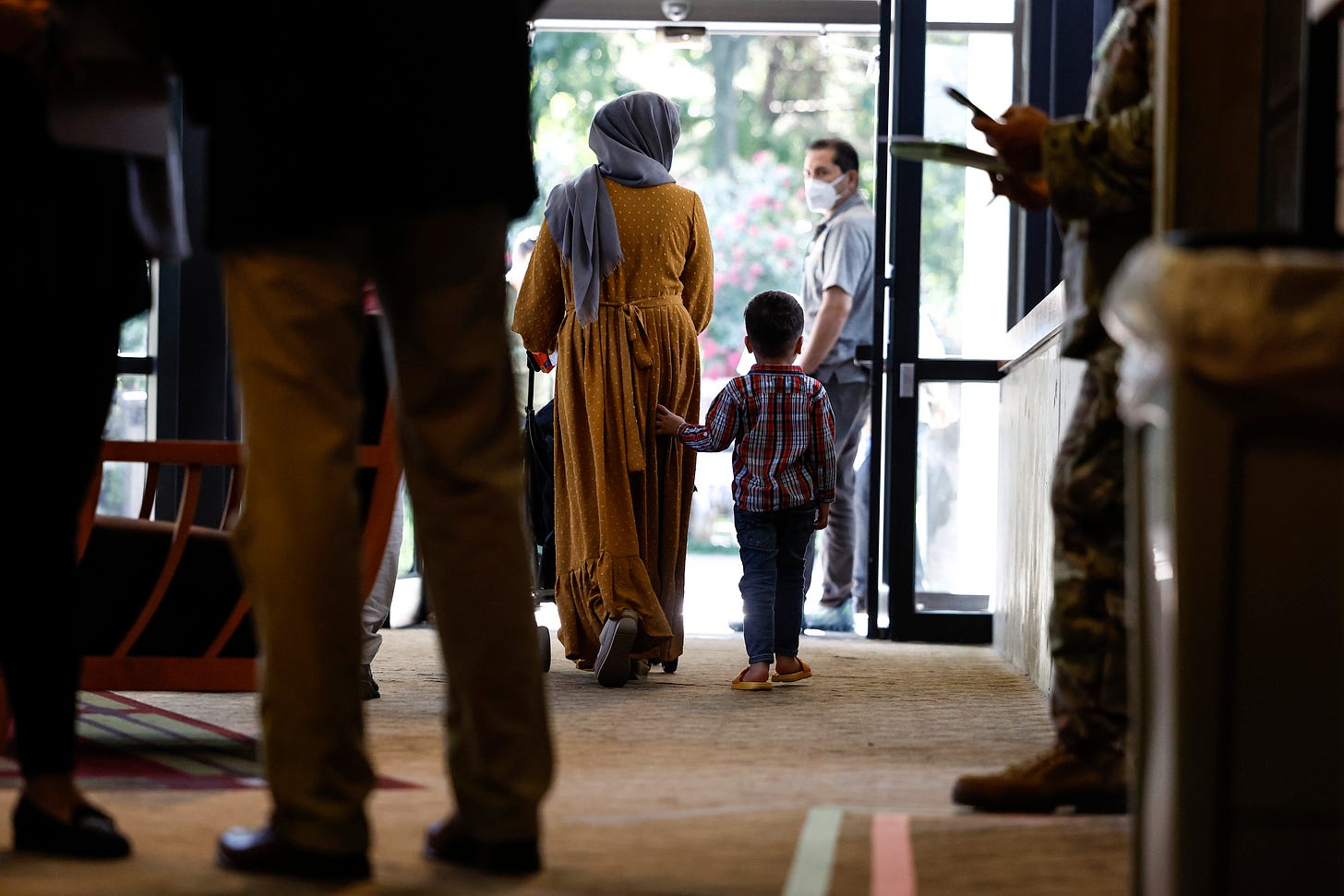The Trump Administration Is Preparing to Send American Allies to Their Deaths
If the Afghans in the United States are deported, they will likely be executed.

OVER THE PAST FEW WEEKS, the Trump administration has begun laying the groundwork for a possible mass deportation of the nearly 90,000 Afghans living in the United States, most of whom came during or shortly after the fall of Afghanistan in August 2021. While approximately 76,000 of these refugees arrived during Operation Allies Welcome, the military operation following the fall of Afghanistan, thousands more came under President Biden’s Operation Enduring Welcome, which created a pipeline for those Afghans left behind. The Trump administration has plans to shutter OEW.
In mid-April, the Trump administration announced plans to revoke 9,000 Afghans’ temporary protected status (TPS), which currently protects them from being deported to dangerous and unstable countries. TPS also allows those under its protection to seek lawful employment, a critical need for impoverished immigrants.
Last week, the Department of Homeland Security sent emails to Afghan refugees telling them to “self-deport” back to Afghanistan. At the same time, according to multiple people active in the Afghan-American community who requested anonymity due to fear of reprisals, two Afghan refugees were improperly detained by Immigration and Customs Enforcement and remain in custody.
Meanwhile, the Trump administration appears to be improving relations with the Taliban. Zalmay Khalizad, who served as Special Representative for Afghan Reconciliation in both the first Trump administration and the Biden administration, arrived in Kabul in late March, ostensibly to secure George Glezmann, an American citizen whom the Taliban released after kidnapping him in 2022. A few days later, the Trump administration removed the bounties on several Taliban officials including Sirajuddin Haqqani, the Taliban’s minister of interior.
Concurrently, Pakistan deported nearly 20,000 Afghan refugees, adding to the 80,000 or more who had already left ahead of the Pakistani government’s April 30 repatriation deadline. Because if the United States isn’t going to welcome Afghans who fought for decades alongside Americans for freedom, justice, human rights, and democracy, why should Pakistan?
While America’s Special Immigrant Visa (SIV) program receives significant media attention, most Afghans in the United States are protected by TPS or humanitarian parole. The SIV program, initially established in 2006 for interpreters, was later expanded to include any Afghan who had worked for the U.S. government for at least a year. This program provides a pathway to legal permanent residence. There is no similarly structured pathway for those here under TPS, although they can apply for a green card.
Some of the people potentially facing deportation are dear personal friends of mine—including women and children, female commandos and pilots—as well as men who stood by America’s combat veterans for twenty years of war. Lieutenant General Haibitullah Alizai, the last head of the Afghan National Army, is the co-founder of the Afghan-American Veterans Alliance and has been an exemplary guest in America. When he isn’t working tirelessly to support his family, he writes passionately and speaks publicly about the need to support those the United States abandoned—for his country’s benefit as well as America’s.
Should any trusted Afghan ally be deported, the Taliban will almost certainly execute them. Over the last three years, the Taliban has executed a stealth decentralized campaign targeting Afghans who worked with the United States. The Taliban and al Qaeda run Afghanistan now. And they have brought back all of their greatest hits: public executions, floggings, and government-sponsored sexual assaults.
While our Afghan allies will be the primary victims of the Trump administration’s deportation fantasies, America’s military community will also feel the reverberations. For almost four years, America’s Afghan combat veterans, aided ably by civilians, have sunk their savings into a rear-guard attempt to salvage any possible honor from America’s longest war. They psychological effects of Trump’s action and its exacerbation of moral injury will likely be more veteran suicides, confrontations with the police, and the destruction of military families.
Wherever the future leads us, I’ve now come to the same conclusion that hundreds of my fellow Afghan combat veterans have: We will have to protect our Afghan allies from the very government that ordered us to befriend them.
Should President Trump deport an Afghan back and the Taliban execute them, he will complete America’s betrayal of not only its Afghan combat veterans, their families, and millions of Afghan women and children, but he will finally complete the ultimate betrayal: of ourselves and the values embodied in a generation of American combat veterans.
So much for standing up for the “warfighter.” So much for respecting the military. So much for making America great.



